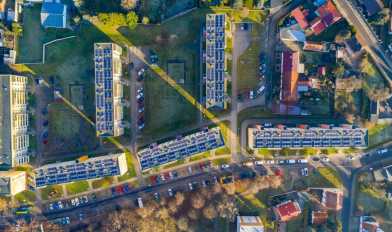ESC News
All stories by Energy Blog @ ETH Zurich
100 Posts Later: The Energy Blog’s Founders on Its Origins and Growing Relevance

As the Energy Blog celebrates its 100th post, we spoke with two of its founders, Yael Borofsky and Florian Egli, to look back on its origins, impact, and the evolving world of energy research. What started as a casual idea among friends during a winter course at ETH Zurich has grown into a respected platform bridging academia, policy, and public conversation.
Mapping the Future Recovery of Ukraine: Regions Prioritization and Renewable Energy Potential

For the first time, ETH Researcher mapped all energy infrastructure in Ukraine (more than 1700 units), identified energy sector damages and calculated detailed renewable energy potential by region, using a comprehensive spatial analysis that integrates environmental, social, and technical factors. Research identifies priority regions for solar and wind energy development, offering a strategic blueprint for the country’s post-war energy recovery.
Unveiling the power of the sun: A guide to estimating your building’s solar energy potential and beyond
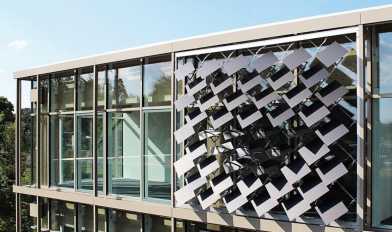
Harnessing the sun’s energy to generate electricity through building envelopes presents an opportunity for us to contribute to a better future. But what is the energy generation potential of your building, and how can you estimate it? Beyond energy generation and savings, what should you keep in mind before integrating photovoltaic systems (PVs)?
Are Swiss solar PV auctions well-designed and how can they be improved?
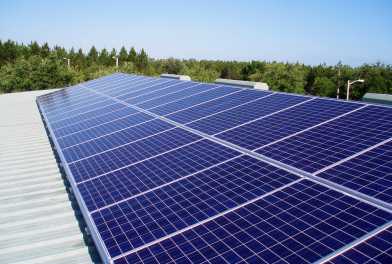
Auctions for renewable energy support have become the standard way to give out subsidies to solar energy projects and other renewables in Europe. In an auction, investors usually compete to receive the subsidy based on their offered support price, where the bidders with the lowest offered prices win. The Swiss government has started using auctions to award investment subsidies to larger PV projects. Are the auctions designed well and fit for purpose? How have the auctions performed until now?
Land-free bioenergy for a carbon-neutral Europe – why, what, how?

Navigating the complexities of bioenergy, its potential for carbon neutrality, and its conflicts with land, food, and feed resources is a pressing issue. What if we could circumvent these issues and focus solely on land-free bioenergy, similar to growing mushrooms on waste coffee grounds for a delicious dish? Waste and byproducts can generate valuable bioenergy, playing strategic roles in a future sustainable energy system.
Can Switzerland transition to a secure renewables-based energy system? Absolutely!
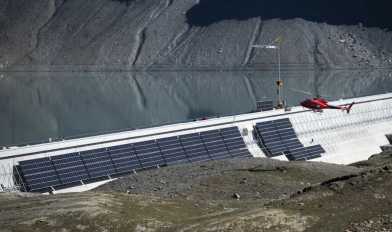
Gabriela Hug and Christian Schaffner argue that securing an affordable energy supply from renewable sources is not a utopian ideal for Switzerland, but rather a practical and feasible necessity.
Should policymakers promote community solar PV systems in cities?
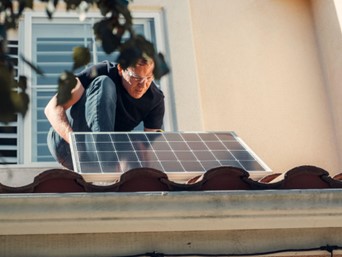
Community solar systems, defined as medium to large-scale PV installations co-owned by multiple building owners and/or tenants, offer one option to increase PV adoption in cities. This blogpost summarizes the findings of our recent paper that explores if, by how much and under which conditions community solar could help accelerate PV adoption in cities
Why we need electricity trade

To decarbonize our economy, electricity will replace oil and natural gas as the primary energy carrier. Where should that power come from? Many people argue that all of it should be produced domestically. Careful analysis suggests some share of it should be imported, says Anthony Patt.
We need more transparent supply chains for a low-carbon society – the case of lithium mining

Every time we calculate the environmental impacts of an electric vehicle, we use data from the lithium carbonate production at the Salar de Atacama in Chile. To meet soaring lithium demand, other, more polluting mining pathways are emerging. However, poor data availability is preventing proper accounting, leading to underestimated environmental damages. What we need are more transparent supply chains for a low-carbon society.
Europe’s infrastructure investments are not growing fast enough to reach net zero
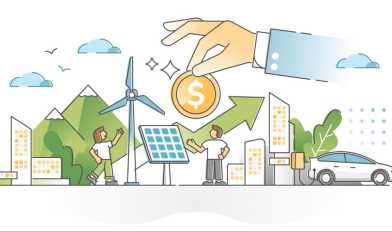
Massive investment in low-carbon infrastructure is required to put Europe on a path to net zero by 2050. While this is no big surprise, it is astonishing that investments are still growing rather slowly, even for market-ready technologies such as onshore wind or solar PV. This Energy Blog post quantifies current investment gaps in Europe’s energy infrastructure and discusses the hurdles that must be urgently overcome to reach the required investment levels.
Ever wondered what urban integrated photovoltaics could mean for spaces and infrastructure in Zurich?
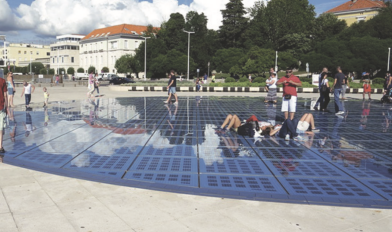
Based on interviews with stakeholders such as architects, engineers, and the city of Zurich, this blog post on the Energy Blog @ ETH Zurich suggests various PV implementations and their benefits at four different scales: Bus shelters, Parking lots, Plazas and Bridges.
The missing piece: How diverse behaviors shape flexible electric vehicle charging

In an increasingly decentralized and electrified energy system, electric vehicle users and their diverse behaviors could both drastically hinder or substantially support current energy transition efforts in many regions globally. The negative or positive effect depends on how users are integrated into the system.
Why and how to put demand-side flexibility at the heart of the zero-carbon electricity transition

Electricity systems require more and more flexibility to integrate increasing shares of variable renewable electricity and avoid costly grid expansion. The demand side – involving electricity end-users – will be key in providing relatively cheap flexibility. Looking beyond the technical aspects is crucial to leverage this potential; namely, by addressing social and regulatory challenges.
Five global energy conversations to follow in 2023

In this blog post, editors Kate, Churchill, and Leopold identify five global energy conversations they will be following in 2023, which they believe will be of interest to you. Check out their picks to stay informed and engaged in these important discussions.
Security of electricity supply: Can the industry sector fix the Swiss winter deficit?

Security of electricity supply and electricity costs have become major business concerns for the Swiss industry sector. On the current trajectory towards a clean energy system, situations in winter with reduced availability of electricity followed by soaring prices may occur more regularly. With Switzerland establishing a strategic reserve to overcome electricity shortage situations, we argue in this blog post that demand-side measures should be part of such a reserve.
Climate protection benefits the economy

While the economic impacts of climate policy are generally perceived as costs, Anthony Patt proposes the opposite perspective. For Switzerland, converting the energy system and reaching the net-zero target may net benefit the economy, he finds
Did you know that access to electricity is not recognized as a universal human right?

Electricity consumption is closely and positively related with global economic and human development across different geographical, social, and cultural contexts. As a Sustainable Development Goal and as an integral part of the water-energy-food nexus, access to electricity is vital to our individual and collective security and well-being. Despite the importance, access to electricity is not explicitly recognized as a universal human right.
Context matters and electrification models should reflect it

The latest blogpost on the Energy Blog @ ETH Zurich discusses a key shortcoming in electrification models used by policymakers and international organizations to chart electricity access pathways in sub-Saharan Africa – unrealistic financing cost assumptions. It highlights why this often overlooked flaw in electrification models could slacken efforts to reach universal electricity access by 2030 and explains why it matters.
Is there a role for blue hydrogen in a green energy transition?
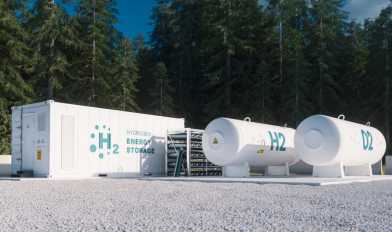
The global energy transition requires a dramatic shift towards renewable and low-carbon energy technologies. Hydrogen is one of these and can be used to store intermittent solar and wind power. As well as being produced from green electricity by electrolysis, it can also be manufactured by capturing and storing carbon dioxide during the conversion of natural gas.
Energy system modeling studies lag behind policy making
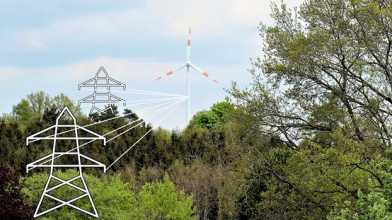
Up until now, energy system modeling using bottom-up capacity expansion models has primarily focused on investigating cost-optimal transition pathways of national energy systems. Now that the transition is accelerating, it is time for this modeling community to start investigating the question of "How do we get to net zero?" by focusing more strongly on how policies can accelerate or impede the transition. Read the whole article in the Energy Blog @ ETH Zurich.
Why we should change the way we environmentally assess building retrofits

Building retrofits are increasingly assessed from an environmental perspective. Standard assessment methods, however, largely do not consider future developments and fail to take into account the state of climate emergency where the time horizon is substantially shorter than the expected building lifetime. Therefore a more forward-looking analysis is required.
Two key ways Switzerland can promote electricity access and take climate action in low-income countries

Earlier this year, the Swiss Agency for Development and Cooperation (SDC) organised the first International Cooperation Forum in Geneva to address poverty and climate change. Two editors of the Energy Blog @ ETH highlight their key takeaways about electricity access from the event.
Energy Blog @ ETH: Cheers to 50 articles! 500 more perhaps?

So the Energy Blog @ ETH just turned 50 articles old! Through the support of the ETH Energy Science Center (ESC), the Energy Blog @ ETH team, consisting mostly of PhD students, along with professors and ESC staff, has worked to create a space where anyone working in energy at ETH Zurich can showcase their research or give informed opinions on pertinent energy topics of our time.
Are skyrocketing gas prices good news for building a renewable energy system?

High gas prices can help the transition to a renewable energy system, but European decision makers must now consider policies to decrease the price volatility exposure of renewables to safeguard the transition. In an analysis recently published in Nature Energy, we show that such policies can strengthen the political support for long-term carbon prices.
Driving or scooting towards shared mobility: what’s in it for urban dwellers?
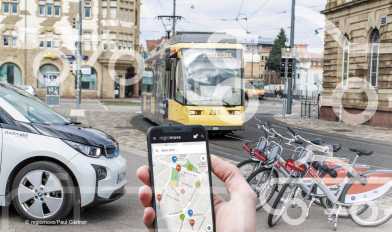
Increasing shared transport supply raises the question how users decide between these and their private car or public transport. So, what is important to them? Konstantin Krauss gives a brief overview about mode choice in the Energy Blog
Deep-sea mining for our mobility transition: the quest for sustainable batteries

Climate change is pressing and we need fast decarbonisation of all aspects of life. As a multi-purpose technology, batteries play a central role in the reduction of carbon emissions. However, the current supply chain of Lithium-ion batteries is often associated with environmental and social burdens. Thus, some voices are advocating alternative mining: potato-sized rocks, rich in critical metals.
Wooden buildings: a natural carbon sink boosted by modern manufacturing technologies

Wood is an ancient construction material, but it has been gradually substituted with concrete and steel. However, the advantages of wood are now being (re)discovered as sustainability becomes a global interest and advanced manufacturing technologies become available. This article focuses on its advantages in carbon capture, digital construction, and prefabrication.
Why old buildings matter – The story of building refurbishments

It is estimated that buildings are responsible for 36% of global final energy use and 40% of the energy-related greenhouse gas emissions in Europe. Buildings are also complex machines with long life cycles, which include regular maintenance and updates. Thus, buildings and particularly building refurbishments provide manifold and exciting opportunities to address climate change issues at low cost and with (free) co-benefits.
Our contribution to climate mitigation – What can we do personally and what can Switzerland do?

Today is National Climate Day in Switzerland. We don’t have much time left to reach our climate goals and to implement our promised share in the fight against global warming – but we already have concrete ways to contribute today! Be it in the choice of our next car, the refurbishment of our own home, or the choice of our vacation destination. Switzerland could become a showcase country for technically, economically and socially feasible solutions for a sustainable energy supply. Let’s do it!
Keeping it cool in Switzerland: The critical impact of air-conditioning uptake

Today, only a minority of Swiss households have air conditioners installed for cooling. This might change due to the warming climate and the growing integration of heat pumps to new buildings, which can be used for heating and cooling. The Swiss cooling energy demand may reach a similar order of magnitude compared to the heating demand by mid-century onwards, which could have a significant impact on the energy system.
Why we need net-zero emissions scenarios for mid-century
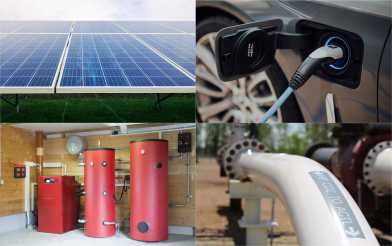
Our goal is not to predict the future, rather to shape it. Net-zero scenarios for the energy system help us do that. Although they deliver only a blurred view of the future, they allow us to guess the shape of things to come, and most importantly to formulate actions for today that will put us on the right track.
Let’s pay more attention to the co-benefits of Switzerland’s decarbonization targets
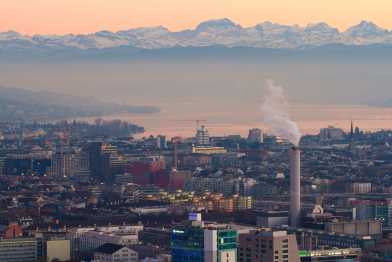
To help keep global warming in check, Switzerland has committed to a net-zero emissions target by the mid-century. The required energy transition will likely give rise to costs, but it will also yield large co-benefits in terms of, for instance, improved health outcomes from less pollution. These are, however, often overlooked. The latest post argues that to take sound decisions related to the energy transition, it is important to consider all the associated costs as well as benefits.
The role of seasonal energy storage in decarbonizing the energy system

Energy storage is required to reliably and sustainably integrate renewable energy into the energy system. Diverse storage technology options are necessary to deal with the variability of energy generation and demand at different time scales, ranging from mere seconds to seasonal shifts. However, only a few technologies are capable of offsetting the long-term (seasonal) mismatch between renewable generation and energy demand.
A voice from exile – Life after Fukushima

Futaba, host of the Fukushima prefecture TEPCO Daiichi nuclear power plant, was evacuated in March, 2011. It has since remained empty. Only recently reopened to the public, Futaba now resembles that of a forgotten ghost town, waiting quietly for life to resume. For Matsueda Atsushi, a once proud Futaba resident, a return home is ridden with doubt and unease.
福島から10年後 – When institutional incumbents hinder energy transitions: Japan’s energy story

Since the 1960’s, Japan has aggressively built its nuclear power industry to be one of the best in the world. The Fukushima nuclear disaster of March 11, 2011 changed all of that. Today, the incumbent nuclear institutions in Japan struggle to maintain both political support and shares of the power supply as they compete with rapidly expanding renewable energies.
Embracing globalization to foster the energy transition

Globalization could benefit the energy transition in many ways. Inevitably, however, some factors might hinder the process, such as resistance from the current beneficiaries and concerns for energy security. With an empathetic mindset and willingness to find win-win solutions, we could hopefully solve the issues and fully utilize the power of globalization to foster the energy transition.
The hitchhiker’s guide to navigating battery misinformation

Unprecedented technological advances, drastic cost declines, and the global transition toward low-carbon infrastructure have made batteries one of the most important technologies of our times. Separating facts about batteries from fiction is vital, especially in a time of rampant misinformation. This guide highlights some of the red flags you should look out for while traversing the seemingly infinite universe of battery information.
Promoting renewable energy sources in Greece: the need for change and the obstacles along the way
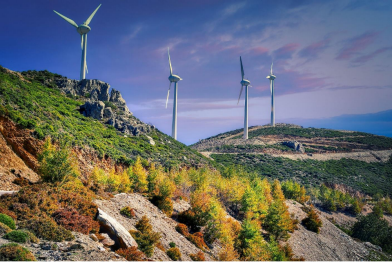
Climate change urges every country to take action. Greece has decided to phase-out lignite, a key fuel in its energy mix, and increase the installed capacity of renewable energy sources. Citizens often oppose new renewable energy investments, like new wind farms. What can the Greek government do to ease this transition?
Vehicle-to-Grid (V2G) and car sharing: Joining forces to decarbonize electricity and transport?
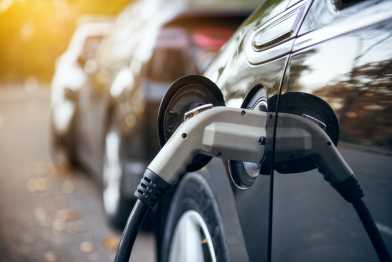
How can we couple future developments in the electricity and transport systems to support decarbonization? Combining Vehicle-to-Grid and car sharing could foster both innovations and achieve synergies in decarbonizing both sectors.
When computational models can evaluate the impact of policies objectively, why are they rarely used in public policymaking?

What should the future Swiss energy system look like? How can nuclear power be replaced? Will we have enough electricity on days where no sun is shining, no wind is blowing, and heating demand is high? Without clear answers, the discussion on the future Swiss energy system becomes bipartisan and emotional. Computational models can provide answers, facilitating a discussion less driven by subjective impressions but rather by profound technical analysis.
How smart grids will change the way architects have to design buildings

In order to efficiently integrate intermittent renewable energy into our grids, we need to change the role that buildings play in a city. Instead of being mere consumers, they need to become a swarm of smart prosumers capable of stabilizing the grid. This calls for a new way how architects should design buildings, leading to the next era of architecture: “Energy Responsivism”.
Promoting adoption of electric motorcycles in Nepal: Challenges and Opportunities

Kathmandu’s stark air pollution and limited public transport infrastructure poses a challenge towards achieving sustainable and adequate transport. Motorcycles are the most sought after mode of private mobility in Nepal. Electric motorcycles appear to be a viable and promising solution, but several technological, market and behavioural factors hinder their higher adoption.
Beyond more Chargers for Electric Vehicles in Zurich
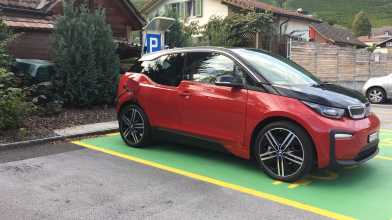
The conventional wisdom is that to increase battery electric vehicle (BEV) uptake, we need more charging points. However, when Gracia Brückmann spoke with citizens, car dealership representatives, representatives from car import companies, and local government about the challenges and opportunities for BEVs in Zurich, they mention different challenges, too, and present solutions to overcome them e.g., including BEVs in coherent sustainable transport systems and reducing political uncertainty.
Data exchange via virtual assistants is key to unlocking the full potential of the future energy system

Connecting buildings to a cross-sectoral, decentralized energy system is a proven means of integrating more renewable energy sources and further increasing energy efficiency. However, the operation of such highly interconnected energy systems is becoming painstaking. Data and algorithms will be the key to overcome these pains and to unlock the innovative systems’ full potential.
Charging Stations in Public Parking Spaces: Case Study from Zurich’s Blue Zones

Although electric mobility has established itself commercially, lack of convenient charging infrastructure remains one of the most substantial barriers for buying an electric vehicle, from a customer’s point of view. This is especially the case for people that park their vehicles in public parking zones. This case study from Zurich’s Blue Zones discusses the techno-economic considerations policymakers need to know about investing on public charging infrastructure.
Building Resilience to the Next Pandemic: The “Power” of sub-Saharan Africa’s Off-grid Electricity Sector

In the wake of the current global pandemic, building resilience to future pandemics will be on the minds of many policymakers going forward. For sub-Saharan Africa, linking electrification with essential services such as healthcare, clean water and sanitation, could do double duty by expanding electricity access and making these countries more resilient to COVID-19. Find out more in the Energy Blog @ ETH Zurich article by Churchill Omondi Agutu.
Navigating towards the future of renewable energy markets

The past decade was undoubtedly a great period for renewable energy (RE) sector. In 2019 alone, the total investment in RE projects worldwide amounted to over USD 250 billion. However, investing is just the first element in the business puzzle. The question now is how to make RE projects profitable or at least non loss-making. Power Purchase Agreements (PPAs) seem to be a promising systematic solution. Find out more in the Energy Blog @ ETH Zurich.
Jointly owned PV should be the new solar ownership model
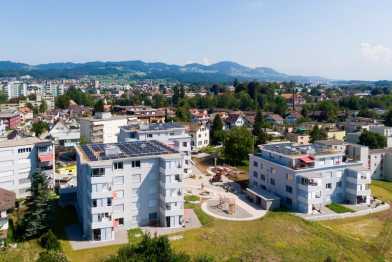
With distributed renewable energy generation, time sensitivity of electricity generated from solar and wind must become an integral part of future electric consumption behavior patterns. In the latest article on the Energy Blog, Danielle Griego outlines how joint ownership of community-scale PV systems have vast potential to establish long-term and intelligent electricity consumption behavior patterns among co-owners.
Coal phase-out: Conflictive but unavoidable
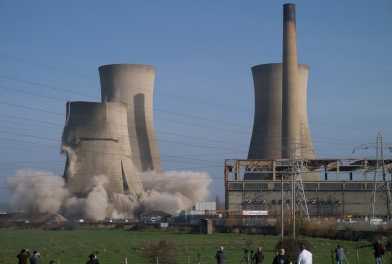
Phasing-out carbon-intensive technologies and business models is a key element for deep decarbonization. Coal is a prime candidate for phase-out and we cannot waste any time. However, every industry decline creates conflicts. Overcoming these conflicts is the key to success. Find out more in the Energy Blog @ ETH Zurich.
Why we need responsive policies to achieve a rapid energy transition

Because we are bad at predicting, slow at changing policies, and the stakes are too high. Responsive policies can help to overcome these limitations. Find out more in the Energy Blog @ ETH Zurich.
Climate and energy policy after COVID-19

There are two serious health emergencies. The first, caused by COVID-19, is a deafening, immediate global health emergency that we experience as an immediate and urgent matter. The second, the emergency related to the pollution of the atmosphere from the use of fossil fuels such as coal, gas and oil, is silent and not very perceptible, but it strikes hard. Find out more in the Energy Blog @ ETH Zurich.
Out of Sight, Out of Mind: Pathways to achieve Net-Zero Carbon Shipping

Shipping accounts for about 3% of global green-house gas emissions. Although targets have been set to reduce these emissions, they are not in line with the IPCC’s 1.5-degree scenario. As the industry is far from the consumer, the concept of “out of sight, out of mind” has so far protected it from public decarbonization pressures. Read more about it in the Energy Blog @ ETH Zurich.
The long way ahead for the energy transition

Concerns about the consequences of excessive global warming have increased interest in the energy transition. General belief is that the energy transition has been the dominant factor of the increased use of renewable energy. However, only few countries/regions show evidence of an actual energy transition. At the global level, its relevance is short of non-existent when you do the math.
Electrifying Rwanda: Why mini-grid companies have lost the game
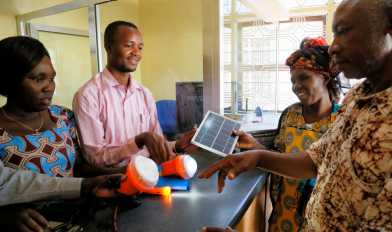
Rwanda’s goal to reach 100% electrification by 2024 relies heavily on off-grid electricity systems, like solar home systems and mini-grids. Based on Churchill Agutu's recent field research, this will be a tall order for burgeoning solar home system and, especially, mini-grid companies, who face a number of challenges to scale. Read more about it in the Energy Blog @ ETH Zurich.
COVID-19 stimulus packages represent a critical juncture for climate policy
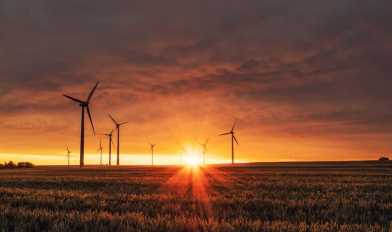
Governments around the world are launching massive stimulus programs to prevent a global crisis due to COVID19. Policymakers should use this window of opportunity to push for more ambitious climate policies. Read the newest post on the Energy Blog @ ETH by Nicholas Schmid from the Energy Politics Group.
Photovoltaics on Buildings – Ugly and Expensive or an Opportunity for Creative Design?

The integration of solar energy technologies in buildings has been available for several decades. However, many buildings are still built without any PV or solar thermal collectors, which in the author's opinion is an intolerable situation. Read more about the newest blog article by Linus Walker on the Energy Blog @ ETH Zurich.
How energy efficient is your daily life?

Have you ever stopped to think about the power consumption of the activities of your daily life? Would you know now, on the spot, whether a washing machine consumes more than a dryer, or vice-versa? Do you know in what order of magnitude their power consumption is? Read more in the latest Energy Blog @ ETH entry by Valentina Stampi-Bombelli.
Understanding the Scale of Back-up Generation in the Developing World

Thanks to unreliable electricity grids, fossil-fuel powered generators in low- and middle-income countries constitute as much generation capacity as up to 1,000 coal-fired plants, finds a new report from the IFC and the Schatz Energy Research Center. That sounds bad for the climate and public health, but generators also help people stay out of poverty. Read more about it in the Energy Blog @ ETH Zurich.
